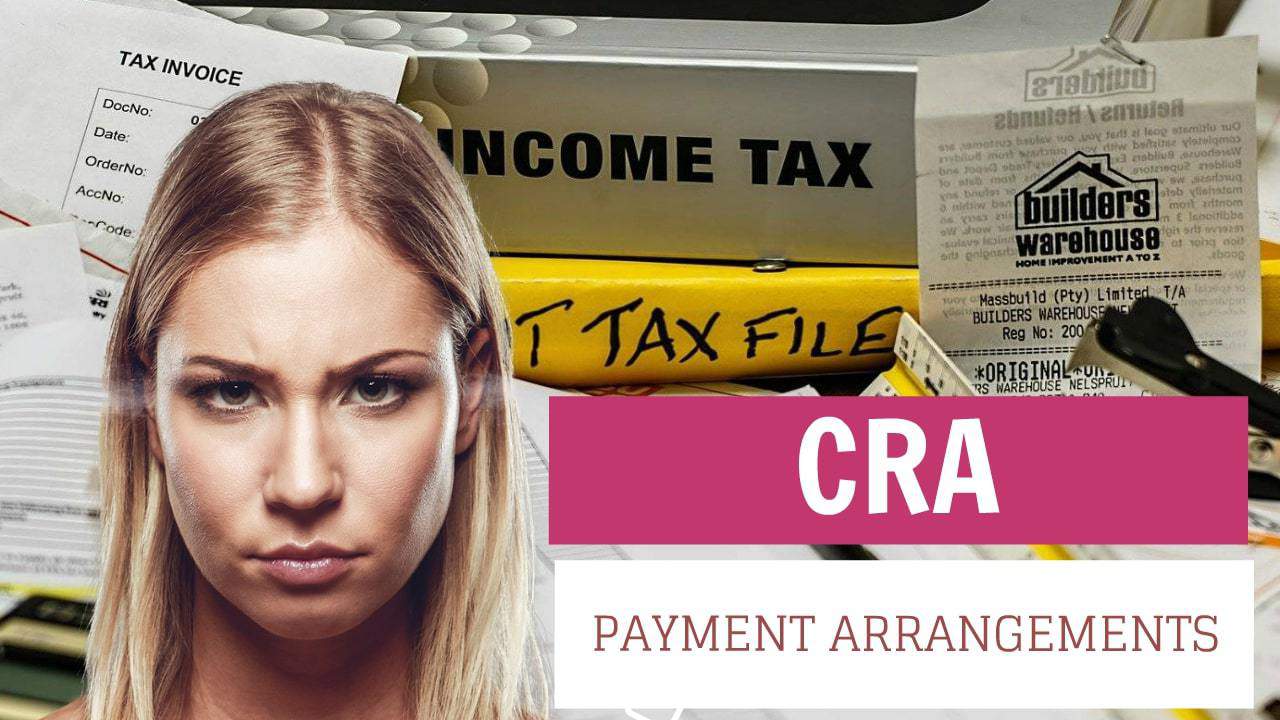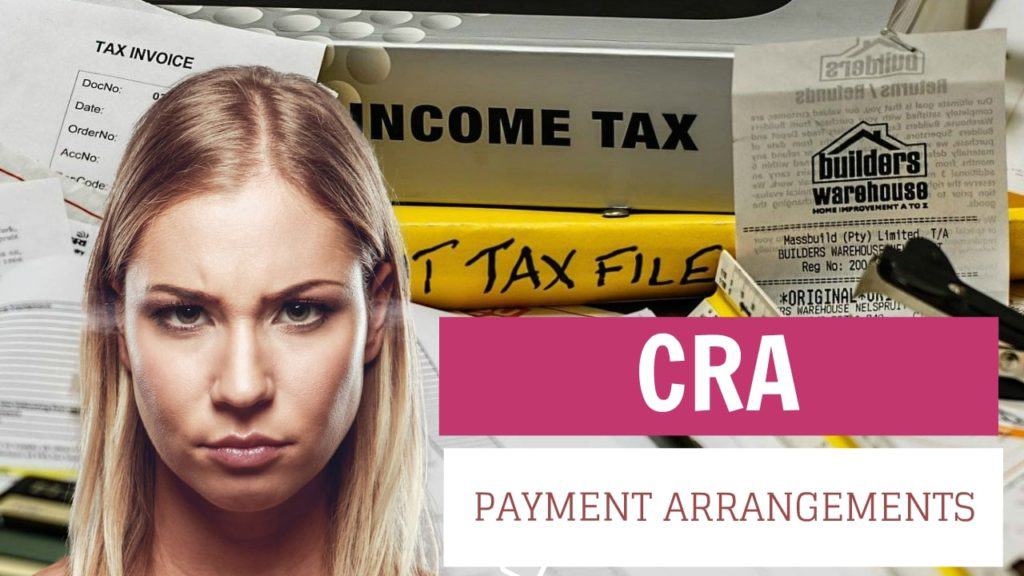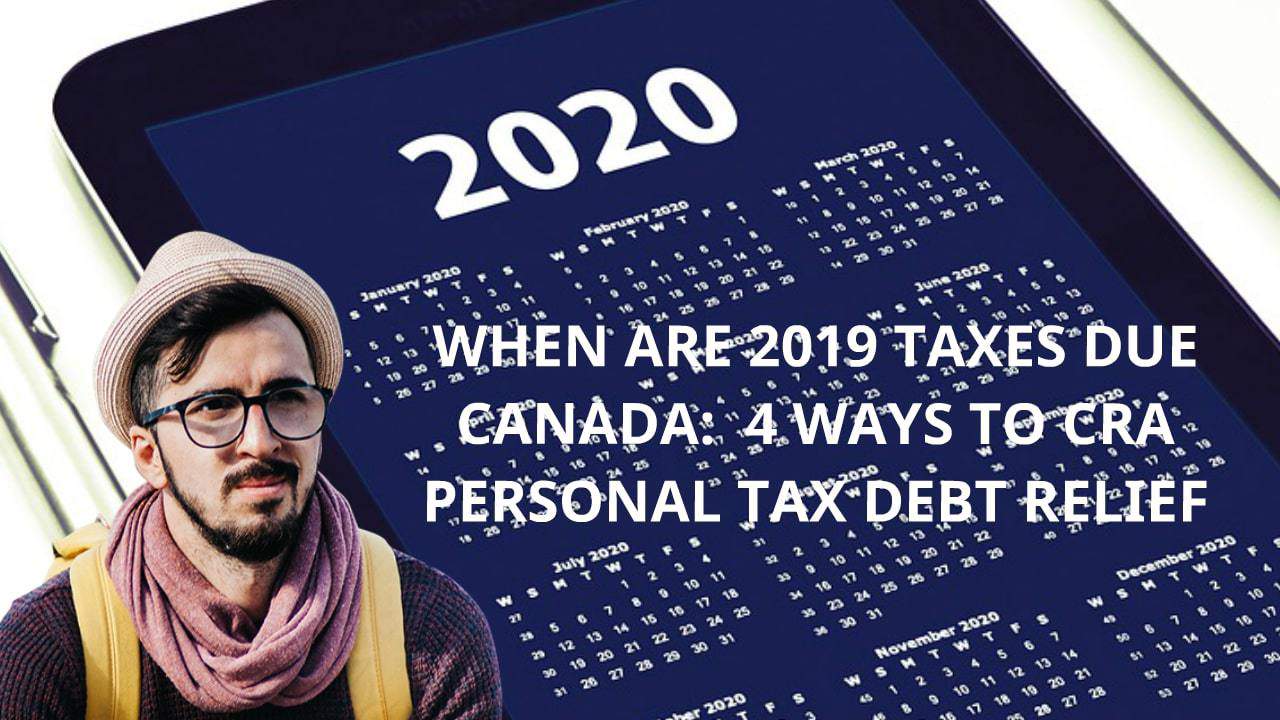
The Ira Smith Trustee Team is absolutely operational and Ira, in addition to Brandon Smith, is readily available for a telephone consultation or video meeting. We hope that you and your family are safe and healthy.
If you would prefer to listen to the audio version of this Brandon’s Blog, please scroll to the bottom of the page and click on the podcast.
CRA payment arrangements –introduction
Are you experiencing income tax problems with the Canada Revenue Agency (CRA)? Some people still call CRA by their old name, Revenue Canada. You may need to make CRA payment arrangements. If you are burdened with serious tax debt and tax problems, although CRA may be your most pressing problem, it still may only be one of several creditors that you have to deal with.
You may be bombarded with advertisements from tax lawyers trying to scare you into believing that you need a tax lawyer in Canada to deal with CRA debt. However, if you can’t enter into proper CRA payment arrangements directly with them, consulting with a licensed insolvency trustee Trustee) may be a much better option to get you into a payment arrangement to take care of your tax debt.
What should I do when the CRA collections officer is calling me?
Neglecting the CRA’s letters or phone calls is never a good suggestion. This will just cause extra extreme collection initiatives and make them much less receptive to reasonable CRA payment arrangements.
Make sure you the options that relate to you under Canada’s tax regulations before you react to any inquiries or requests from the CRA. As an example, if a CRA agent asks for your financial information or a listing of your business customers, request time to adhere to this demand. Then use that time to promptly seek the help of a proper tax professional.
Keep all documents and also make sure CRA payment arrangements and other discussions and agreements are confirmed in writing by the appropriate CRA collections officer.
Then armed with proper advice, you can make the choice that best suits your situation.
What are the CRA payment arrangements?
The CRA isn’t looking to prosecute you; the collections officer is looking for debt collection of money from you when you did not include the required payment with your tax filing. One of the ways they can do that is through CRA payment arrangements.
A payment plan with the CRA allows you to make smaller-sized repayments over time till you have paid your entire financial debt. In any payment plan, even though you are making payments, interest continues to be charged on the outstanding tax debt.
To help the CRA establish your capability to pay, they will of course first look up your prior tax returns tied into your social insurance number. They will do that first to see what our average reported income has been over the last few years to get an initial idea of your ability to repay.
Financial disclosure will be important. They will certainly want you to give current information on your financial situation. This will include evidence of your current income, expenditures, assets, and debts to others. CRA already knows how much you owe them!
If they agree to get into CRA payment arrangements with you, they will want either a series of post-dated cheques or your entering into a pre-authorized debit agreement. They will also warn you that if any cheque is not honoured by your bank, then your deal with CRA is off. At that point, they will go back into full collection mode.
Why enter into a payment arrangement?
If you have an income tax obligation as a result of not being able to pay your full personal income tax obligation when filing your income tax return, then a payment arrangement makes sense.
Since the onset of COVID-19, CRA staff, including the group that includes the collections officer, have been working from home. That is continuing and the tax system in Canada is functioning. Since September 2020, they are calling and writing taxpayers about their existing income tax debt arising from your tax filing and the resultant notice of assessment.
The CRA will reconnect with taxpayers to re-evaluate their financial situation and agree to a settlement plan, where feasible. CRA would prefer to get the money you owe through CRA payment arrangements. They do not want to initiate legal action unless all collection efforts have failed.
So why enter into a payment arrangement? To show CRA that you want to work with them and to avoid tax debt collection activities that will most certainly disrupt your life.
Can you apply to CRA to reduce penalty, interest and tax debt?
Tax lawyers that advertise on television make a big deal out of making an application to the Minister of Revenue to have parts of the individual tax debt either reduced or eliminated. This process is called filing under the taxpayer relief provisions of the Income Tax Act.
When there is a legitimate basis in tax law to do so, of course. However, I have done many consumer proposals for people who went to such a TV tax lawyer who first touted the benefits of making such an application. It is very seductive to be told by a professional that if the taxpayer relief petition is successful, your tax debt will vanish, or at least you will get relief of penalties and there will be no need for CRA payment arrangements.
The problem is that when you have no real basis, it won’t work. It does take a long time for CRA to decide on your relief request so pushing it off way into the future is attractive. However, I have not seen one such application touted by the TV tax lawyer work. What has happened is the person has paid about $10,000 to that tax lawyer to fill in a couple of pieces of paper for a process that did not work.
As I mentioned, those same people then come back to me to file their consumer proposal to settle all their debts. I understand why they would prefer not to. I just hate to see people spend money they can’t afford to because they were sold a dream that can never be fulfilled. Now the person owes even more because of accrued interest. Entering into CRA payment arrangements has a much higher chance of success than applying for taxpayer relief when there is no basis in income tax law to do so.

Without CRA payment arrangements, what can CRA do to enforce payment of my tax liability?
Enforcement activity will usually include freezing and taking the money in your bank accounts, garnishing (taking) your salary or wages if you are an employee. If you are a proprietor of a business, they can notify your customers and seize your receivables. Also, without notice to you, they can get a federal judgment to place a lien on your residence.
You really do not want to experience any of these more drastic collection methods used by CRA. You want to try your best to meet your payment obligations. Third-party assessments, asset liens, tax garnishments are not fun.
These actions are severe and will totally disrupt your life. Keep in mind that CRA usually only goes to this extent if you have shown non-compliance with their attempts to enter into CRA payment arrangements.
What if I am experiencing financial hardship?
If you are experiencing financial hardship and perhaps have unmanageable debts above and beyond income tax debt, then CRA payment arrangements are probably also out of reach for you. In that case, contact a Trustee. I will review your entire financial situation and give you options in eliminating your debts. This initial consultation will be at no cost to you.
Hopefully, you will be able to avoid bankruptcy by filing a consumer proposal. A consumer proposal is the only debt settlement plan approved and supervised by the Canadian government.
If you run a business through a proprietorship, keep in mind that there are two kinds of tax debt that cannot be eliminated, even by bankruptcy. The first is unremitted source deductions from your employee payroll. The other is GST/HST that you collected but have not remitted to CRA.
The reason is that these are trust amounts. The tax law says that you are holding those amounts in trust for the government. So, if you have any tax debts that are trust amounts, those will have to be paid in full. Through a consumer proposal, I can get you into separate CRA payment arrangements so that you will get some time to pay the trust claims. No one, including TV tax lawyers, can do anything better for you for trust amounts.
CRA payment arrangements summary
I hope you have enjoyed this CRA payment arrangements Brandon’s Blog. I can help you solve tax and other debt problems.
Do you or your company have too much debt? Are you or your company in need of financial restructuring? The financial restructuring process is complex. The Ira Smith Team understands how to do a complex restructuring. However, more importantly, we understand the needs of the entrepreneur or the person who has too much personal debt.
You are worried because you are facing significant financial challenges. It is not your fault that you are in this situation. You have been only shown the old ways that do not work anymore. The Ira Smith Team uses new modern ways to get you out of your debt troubles while avoiding bankruptcy. We can get you debt relief freedom.
The stress placed upon you is huge. We understand your pain points. We look at your entire situation and devise a strategy that is as unique as you and your problems; financial and emotional. The way we take the load off of your shoulders and devise a debt settlement plan, we know that we can help you.
We know that people facing financial problems need a realistic lifeline. There is no “one solution fits all” approach with the Ira Smith Team.
That is why we can develop a restructuring process as unique as the financial problems and pain you are facing. If any of this sounds familiar to you and you are serious about finding a solution, contact the Ira Smith Trustee & Receiver Inc. team today.
Call us now for a free consultation.
We will get you or your company back on the road to healthy stress-free operations and recover from the pain points in your life, Starting Over, Starting Now.
The Ira Smith Trustee Team is absolutely operational and Ira, in addition to Brandon Smith, is readily available for a telephone consultation or video meeting. We hope that you and your family are safe and healthy.

